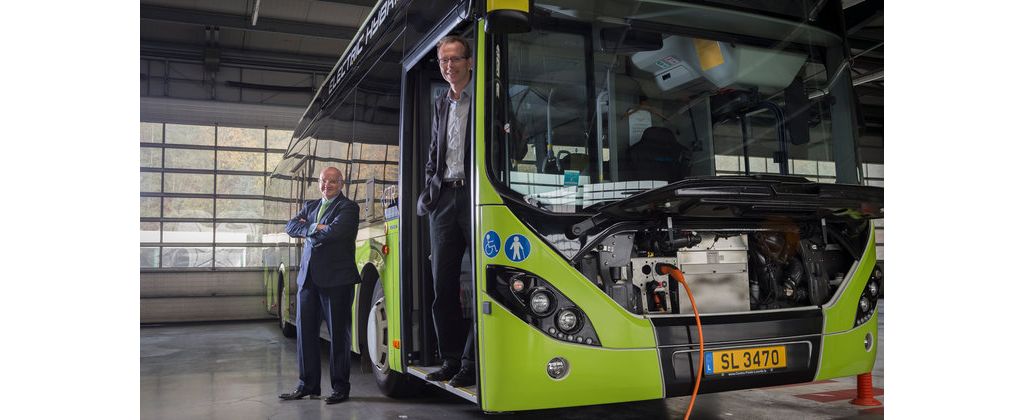Sales-Lentz makes electric change together with Volvo Buses


For its inter-urban routes towards Luxembourg City, the hybrid buses are the best option. They can operate in diesel mode outside urban areas, thus saving the battery. The new electric buses meet the requirements for the town itself, as they will lower noise and pollution levels in this growing, former industrial city.
“In our opinion, the noise aspect is at least as important as the emissions,” says Georges Hilbert, Technical Director at Sales-Lentz. Studies have shown the detrimental impact of noise levels on human health, a problem that is particularly acute in Differdange.
“It is an industrial city with narrow streets, many one way, and noise is more critical than in a capital city with wide boulevards,” Georges Hilbert explains.
The green performance of Sales-Lentz reflects the interest of Wolfgang Schroeder, the company’s director general, who attributes his own environmental consciousness to his upbringing in the Black Forest, Germany.
“I believe in electro-mobility, with either opportunity charging or overnight charging, depending on the application and line,” he says.
“It is an investment in the future, and there are some cost savings down the line.”
While the company estimates that these savings will not be realised for 10 years, the Volvo 7900 electric buses nevertheless have a far lower energy cost than a corresponding diesel bus.
Ahead of the launch of the service, the operator will install two charging points on the routes in Differdange, in partnership with its Dutch supplier Heliox. The buses will stop under the charging infrastructure – the system connects the bus automatically with the pantograph– every half an hour during the day for fast charging at 300 kWh for three to six minutes.
The batteries will then be fully charged over night for three to four hours.
Sales-Lentz emphasises that the Volvo Buses’ option of using smaller size batteries that can be fast charged has the advantage that it does not reduce the number of passengers the bus can then transport.
The new fleet of 12-metre buses can carry 85 passengers each and Sales-Lentz is confident that the service could attract more locals to use public transport. The buses will be equipped with onboard WiFi and USB plug-in points.
“The city is really moving from its industrial heritage to a modern liveable city with good quality of life,” says Georges Hilbert.
Facts
Sales-Lentz is a family-owned business founded in 1948. Today they run nearly 500 buses in a wide range of segments, including travel, public transport, school buses, airport shuttles, business travel and disability transportation. They mainly operate in Luxembourg, but also own Voyages Léonard, a subsidary located in Belgium.
Sales-Lentz is pioneers in the field of electromobility. Presently their fleet consists of 24 Volvo hybrids, 12 electric hybrids and four Volvo 7900 electric buses; all of them have full-service conctracts with the local Volvo bus and truck dealer.